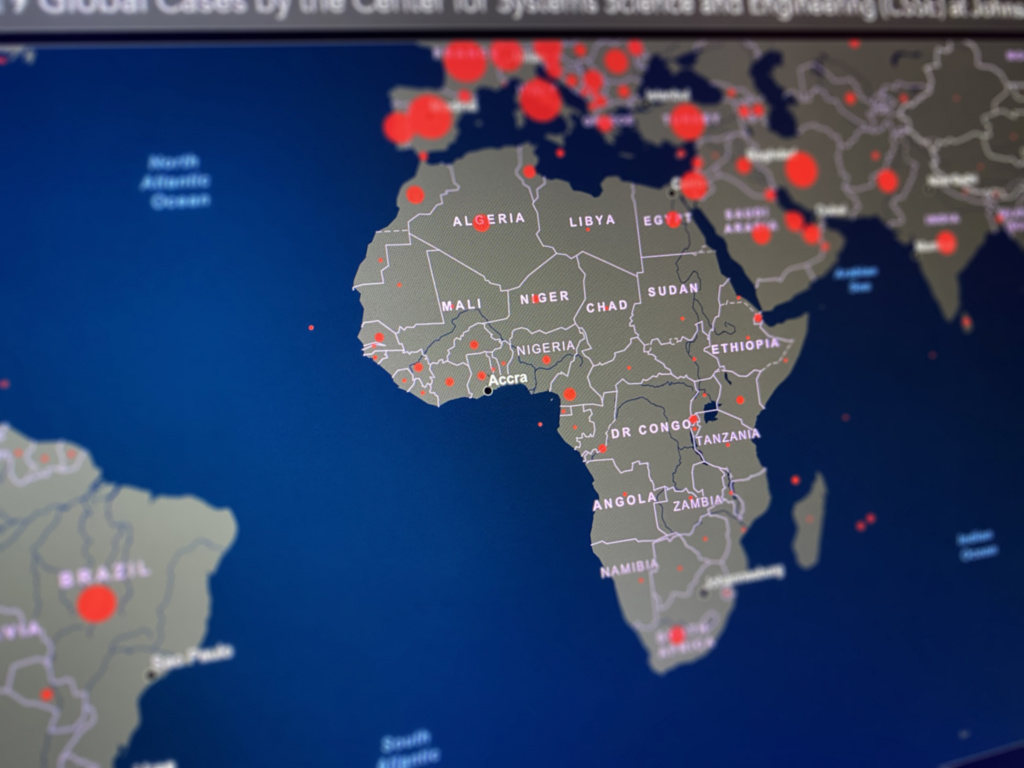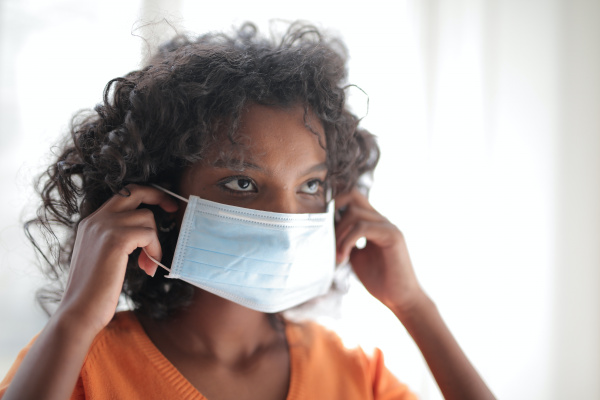As of April 7, 2020, there were 10,427 confirmed cases of COVID-19, represented in all 54 African countries, while 514 people have died. Of these countries, South Africa and Algeria originally had the most confirmed cases, making up 44.12% and 13.84% of the region’s cases, respectively. In the last few weeks, cases have surged in other countries as well. Although the number of confirmed cases of COVID-19 in Africa continues to rise, one encouragement is that the number of nations capable of testing for COVID-19 has increased to all 54 while there were only two a short time ago.1
South Africa
The South African government is combating the spread of COVID-19 by enforcing a nationwide lockdown. This lockdown began on March 26 and is set to continue for the following 21 days.2 The government has ordered that no one leave their homes unless they are seeking necessary medical attention, obtaining a good or service that is considered essential or performing a necessary service. Furthermore, the government has prohibited all travel between metropolitan areas and provinces.
Not only has the government ordered all stores that sell non-essential goods to close, but it has also ordered all stores that sell essential goods to stop selling any non-essential goods.2 All stores that remain open must ensure that there is an area of at least 1 m2 between all customers.
The nation has closed its borders to all travel except for necessary transports of fuel and other needed goods. Any foreign people who enter the country are ordered to stay in their place of temporary residence for 14 days or until the lockdown ends.
All transport services, including buses, taxis, and flights, are prohibited except for essential travel.2
Despite all of these precautions, South Africa still has the highest number of cases of any African nation.1
Although South Africa has taken many helpful precautions for avoiding the spread of COVID-19, one potential problem with their policy is that the government is not prohibiting its people from holding funerals.2 The government has mandated that funerals cannot have more than fifty attendees, but there is still tremendous potential for COVID-19 to spread within these groups. Once the people leave the funerals, they are very likely to spread COVID-19 to their families and others they come into contact with.
Algeria
In Algeria, the government attempted to fight the spread of COVID-19 very early on.3 The first case in Algeria was a visiting Italian national and was confirmed on February 25.4
The next day, the nation set up a free 24-hour call center run by volunteer doctors for the purpose of dispelling rumors about the disease and giving people proper instructions on how to prevent its spread. As of March 12, the doctors at the call center were telling callers who were afraid to leave their homes that there was no need to panic or stay home.4
However, the government has since ordered that there be no gatherings of more than two people and that all schools, places of worship and restaurants must be closed.5 Curfews are in effect in the nation’s major cities between 7 p.m. and 7 a.m. every day. Algerian President Tebboune announced a ban on all non-cargo international flights on March 17. Then, on March 22, all domestic flights were also stopped.5
Although the proactivity of the Algerian government and the willingness of doctors to volunteer their services in the call center is definitely admirable, it is possible that the initial advice of the doctors for people to not worry about leaving their homes may have resulted in increased spread of COVID-19. This advice was extremely widespread in the nation—46,000 people contacted the call center within just its first ten days.4
Ethiopia
Some other African nations have had far fewer confirmed cases. For example, Ethiopia had only 16 confirmed cases as of March 28.1 Although it may seem from this number that Ethiopia is doing a better job of containing COVID-19, it is also possible that fewer people are being tested in this nation.
One tremendous issue is that the millions of people living in the western Oromia region of Ethiopia are under a government shutdown of phone and internet services that has been in effect for several months.6 Therefore, they are unable to obtain news concerning the spread of COVID-19 and how to protect themselves from contracting it or spreading it to others. It is unclear whether COVID-19 testing is available for the people living in this region.
In order to prevent the spread of COVID-19 in Ethiopia’s overcrowded prisons, the nation released about 4,000 prisoners.7
Kenya
Another African nation with very few confirmed cases is Kenya, which had only 25 as of March 28.1 The nation forced all who entered it between March 23 and 25 to be quarantined at their own expense in a government facility. They also stated that everyone who has any symptoms of COVID-19 should be tested.8
It seems unlikely that the small number of confirmed cases in Kenya would be due to a lack of testing because the Eastern Africa branch of the Africa CDC is headquartered at the Kenyatta National Hospital in Nairobi, Kenya.9 Therefore, Kenya should have the greatest testing capacity of any of the eastern African nations.
Observations on Relation of Number of COVID-19 Cases and GDP Ranking
One interesting observation is that although South Africa and Algeria have the most confirmed cases of COVID-19 among African nations, they also have some of the highest GDP rankings among African nations. The GDP of South Africa was about $350 billion in 2018, and that of Algeria was around $170 billion.10 On the other hand, the GDP of Kenya was about $75 billion in 2018, a figure comparable to that of Ethiopia.10 It is interesting that although these nations have only have about half the GDP of Algeria and about one-fifth that of South Africa, they have far fewer confirmed cases of COVID-19.
There are a few possible explanations for these observations.
First, it is possible that Kenya and Ethiopia, with their lower GDP rankings, simply cannot afford to perform as many COVID-19 tests and that these nations actually have more cases than they have confirmed.
Second, it is possible that nations with higher GDP are more vulnerable to COVID-19 outbreaks because of factors associated with having a higher GDP. For example, a nation with a very high GDP is likely to have more and larger cities than one with a very low GDP. If a nation has more cities and more areas of high population density, it is very easy for diseases to spread.
Also, a nation with high GDP may be more likely to have more visitors from other nations including tourists and businesspeople. The more people that enter a country, the more likely it is that someone will bring in a disease like COVID-19.
One difficulty in determining the exact reason why Kenya and Ethiopia have so many fewer cases is that so little reliable information on the state of the COVID-19 pandemic in these nations is available.
References:
- Coronavirus in Africa Tracker. Royal African Society (2020).
- COVID-19/Novel Coronavirus. South African Government (2020).
- Chibout L, Otto B. Algeria’s COVID-19 hotline props up rapid response. World Health Organization: Regional Office for Africa (2020).
- Novel Coronavirus (2019-nCoV) Global Epidemic—3 March 2020. Africa Centres for Disease Control and Prevention (2020).
- COVID-19 Information. S. Embassy in Algeria (2020).
- Bader L. Millions of Ethiopians can’t get COVID-19 news: Refusal to restore communications threatens public health. Human Rights Watch (2020).
- Ethiopia to release prisoners over COVID-19 fears, as South Africa locks down. Democracy Now (2020).
- COVID-19 Information. S. Embassy in Kenya (2020).
- Eastern Africa RCC. Africa Centres for Disease Control and Prevention (2020).
- Gross Domestic Product Public Data. World Bank (2018).








